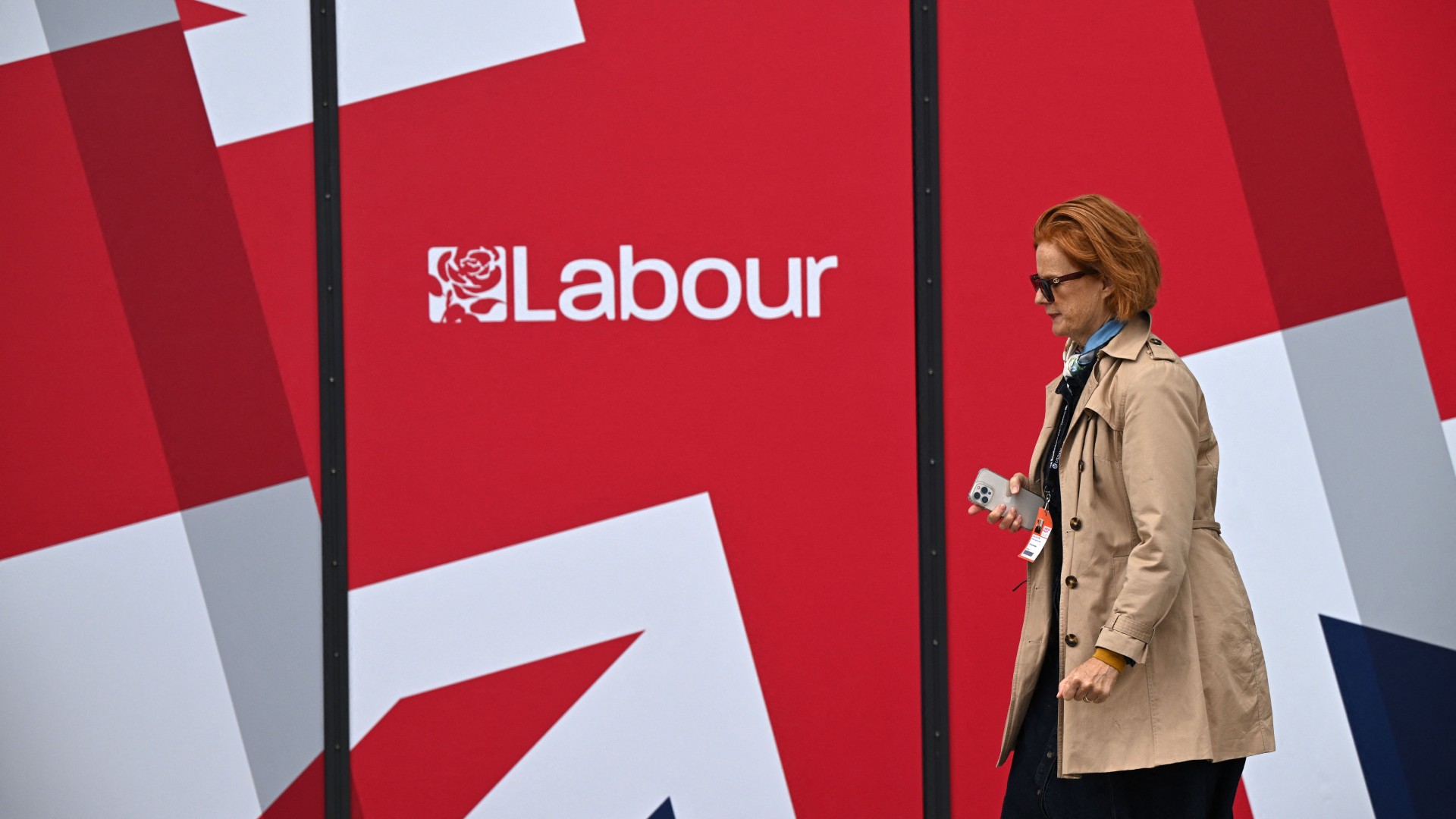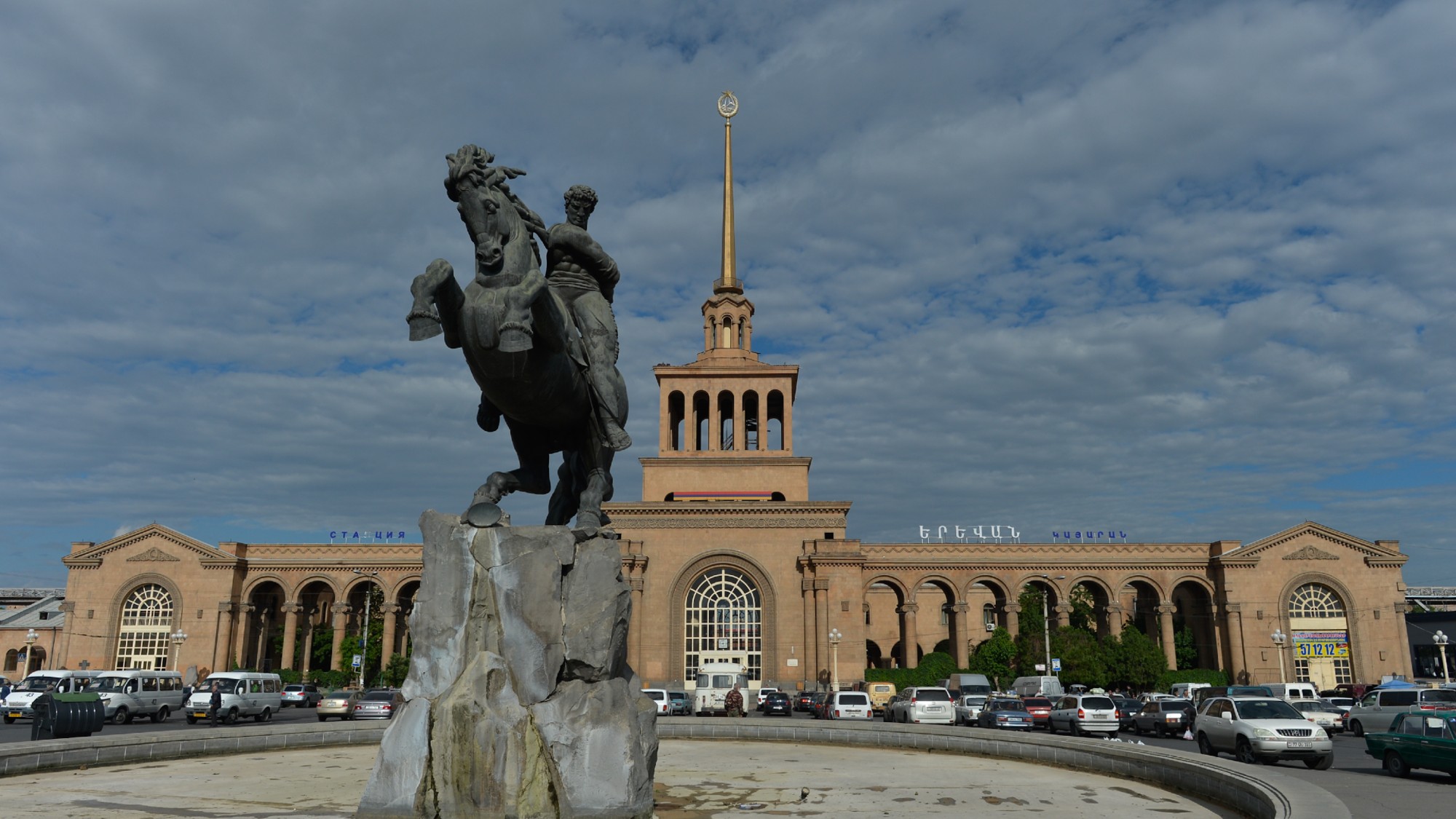Labour's Brexit conundrum
Keir Starmer backs 'twin track' strategy of building closer security ties with EU while ruling out single market, customs union and free movement

A free daily email with the biggest news stories of the day – and the best features from TheWeek.com
You are now subscribed
Your newsletter sign-up was successful
A Labour government would seek to strengthen ties with the European Union on common interests but would rule out rejoining the single market, customs union or adopting free movement, according to insiders.
Senior party officials told the Financial Times that Keir Starmer favours a "twin-track strategy" to build closer trade and security ties but will not cross the three Brexit "red lines". Debate is reportedly "raging" about what this new deal might involve.
At the moment, "Brexit barely figures on voters' lists of pressing concerns, with inflation and the economy at the top", said The Guardian. But with recent poll findings showing that 60% of Britons would now vote to rejoin the bloc, Brexit "is likely to be a recurring – and potentially fraught – feature of a Starmer premiership".
The Week
Escape your echo chamber. Get the facts behind the news, plus analysis from multiple perspectives.

Sign up for The Week's Free Newsletters
From our morning news briefing to a weekly Good News Newsletter, get the best of The Week delivered directly to your inbox.
From our morning news briefing to a weekly Good News Newsletter, get the best of The Week delivered directly to your inbox.
What is Labour's position on Brexit?
In the run-up to the 2019 election, Starmer crafted Labour's pledge to offer a second Brexit referendum. But since taking over as party leader in April 2020, he has repeatedly ruled out rejoining the single market or the customs union or adopting free movement.
These three Brexit red lines will form the basis of Labour's manifesto pledge on Europe, said the FT, and give Starmer "political cover for a lower-profile pursuit of co-operation in a range of areas".
The party has left the "door ajar to moving towards a somewhat closer relationship with the single market", said the UK in a Changing Europe think tank. Possibilities raised include mutual recognition of professional qualifications, the introduction of a mobility scheme and minimising regulatory divergence.
Is Labour's position changing?
Labour's top team have recently begun talking about improving the UK-EU relationship, with Starmer and shadow foreign secretary David Lammy making a series of visits to EU officials in recent months. They are "keen to create softer mood music", said The Guardian.
A free daily email with the biggest news stories of the day – and the best features from TheWeek.com
Russia's war in Ukraine is making the need for a security agreement between the UK and EU "more pressing", said Politico.
"It's absolutely fundamental that the United Kingdom and Europe have the closest of relationships and the Brexit era is over, the situation is settled," Lammy told the Munich Security Conference last month.
It is "bizarre" that the UK has "far less political contact with the EU than the Chinese or the Canadians", Anand Menon, director of UK in a Changing Europe, told The Guardian. "That is just weird. So I think that's a bit of a no-brainer."
Some Labour insiders are hopeful that regular discussions on security could embrace "broader issues", such as energy, supply chains and migration, said the paper.
What are the criticisms of Labour's position?
Starmer is facing a difficult balancing act. He needs to avoid scaring off Brexit-backing supporters in northern "Red Wall" seats by appearing to soften Labour's stance on rejoining the EU or freedom of movement. But he also has to contend with a significant proportion of voters who, as recent polls suggest, desire closer cooperation with and even re-entry to the EU.
London's Labour mayor, Sadiq Khan, said he found it "frustrating" that Labour had vowed to "respect" the referendum vote. The "bad news" is that it will take "at least a decade before we can even talk about another referendum", he told La Repubblica.
But Labour peer Peter Mandelson believes there is no desire from UK voters to relive the Brexit wars of the past decade. "I cannot see the British people running towards [a referendum] for love nor money after what we went through during the last one," the former EU trade commissioner told a British Chambers of Commerce event last month.
Brussels also wants a more "stable, constructive relationship" with the UK but has no desire for wholesale negotiation of the country's return, he said. "Reopen a negotiation? You've got to be joking!" said The Guardian.
Ultimately, the "soft-Remainer view" that Starmer might be able to negotiate a "superior, closer deal with the EU while remaining outside the single market, is deluded", said Sherelle Jacobs, assistant comment editor of The Telegraph.
"When it comes to 'The B Word', British politics has become gripped by a kind of 'violence of silence'". Politicians and voters alike are "reluctant to confront the fallout from the country's mangled, halfway situation".
"At some point we need to be honest with ourselves," Jacobs concluded. "If, as a nation, we are unwilling to maximally benefit from Brexit by leveraging our freedom, then we should decisively minimise our losses and re-enter the security of the EU fold."
-
 Health insurance: Premiums soar as ACA subsidies end
Health insurance: Premiums soar as ACA subsidies endFeature 1.4 million people have dropped coverage
-
 Anthropic: AI triggers the ‘SaaSpocalypse’
Anthropic: AI triggers the ‘SaaSpocalypse’Feature A grim reaper for software services?
-
 NIH director Bhattacharya tapped as acting CDC head
NIH director Bhattacharya tapped as acting CDC headSpeed Read Jay Bhattacharya, a critic of the CDC’s Covid-19 response, will now lead the Centers for Disease Control and Prevention
-
 Antonia Romeo and Whitehall’s women problem
Antonia Romeo and Whitehall’s women problemThe Explainer Before her appointment as cabinet secretary, commentators said hostile briefings and vetting concerns were evidence of ‘sexist, misogynistic culture’ in No. 10
-
 Local elections 2026: where are they and who is expected to win?
Local elections 2026: where are they and who is expected to win?The Explainer Labour is braced for heavy losses and U-turn on postponing some council elections hasn’t helped the party’s prospects
-
 How corrupt is the UK?
How corrupt is the UK?The Explainer Decline in standards ‘risks becoming a defining feature of our political culture’ as Britain falls to lowest ever score on global index
-
 ‘The West needs people’
‘The West needs people’Instant Opinion Opinion, comment and editorials of the day
-
 ‘Various international actors hope to influence the result for their own benefit’
‘Various international actors hope to influence the result for their own benefit’Instant Opinion Opinion, comment and editorials of the day
-
 The Mandelson files: Labour Svengali’s parting gift to Starmer
The Mandelson files: Labour Svengali’s parting gift to StarmerThe Explainer Texts and emails about Mandelson’s appointment as US ambassador could fuel biggest political scandal ‘for a generation’
-
 Will Peter Mandelson and Andrew testify to US Congress?
Will Peter Mandelson and Andrew testify to US Congress?Today's Big Question Could political pressure overcome legal obstacles and force either man to give evidence over their relationship with Jeffrey Epstein?
-
 Reforming the House of Lords
Reforming the House of LordsThe Explainer Keir Starmer’s government regards reform of the House of Lords as ‘long overdue and essential’